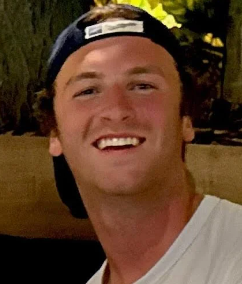
 June 29, 2015 The Hague, Netherlands—Leading decision makers from more than a dozen countries will...
June 29, 2015 The Hague, Netherlands—Leading decision makers from more than a dozen countries will...
June 29, 2015
The Hague, Netherlands—Leading decision makers from more than a dozen countries will gather in The Hague from June 29 to July 1 to consider the failure of the international community to prevent the fall of the United Nations “safe area” of Srebrenica in July 1995, resulting in the largest massacre in Europe since World War II.
The convening of former officials and eyewitnesses from Europe, North America, Asia, and the United Nations coincides with the 20th anniversary of the executions of around 7,000 Muslims prisoners by the Bosnian Serb army following their capture of the Srebrenica enclave on July 11, 1995. The International Tribunal for the Former Yugoslavia has ruled that the killings and mass expulsion of Muslims from Serb-controlled territories in eastern Bosnia constituted a “genocide” under the definition of the 1948 Genocide Convention.
The conference is sponsored by the United States Holocaust Memorial Museum and The Hague Institute for Global Justice, in cooperation with the National Security Archive at George Washington University. It is part of a broader initiative, International Decision Making in the Age of Genocide, that began last year with a conference on the Rwandan genocide and the declassification and public release of thousands of previously secret documents.
Participants in the Srebrenica convening include former special representative of the UN secretary-general Yasushi Akashi, former European peace negotiator Carl Bildt, former commander of UN forces in Bosnia General Sir Rupert Smith, Srebrenica survivor Muhamed Durakovic, and three former members of the UN Security Council. The wartime Bosnian government will be represented by Hasan Muratovic, the minister responsible for relations with the international community, and former deputy prime minister and foreign minister Zlatko Lagumdzija.
“By assembling many of the key participants in the same room, we hope to get fresh insights into the failure of the international community to prevent the defining conflict of the immediate post-Cold War era,” said Cameron Hudson, director of the Simon-Skjodt Center for the Prevention of Genocide at the United States Holocaust Memorial Museum. “It is important to learn from the past in order to reduce the likelihood of similar tragedies in the future.”
The conference will examine the period of March 1993 to July 1995, beginning with the establishment of the so-called Srebrenica “safe area” by the UN Security Council, in an attempt to protect the beleaguered Muslim population of eastern Bosnia. Declassified documents have revealed sharp differences of opinion between the diplomats in New York and leaders of the United Nations Protection Force (UNPROFOR) peacekeeping force on the feasibility of the “safe area” concept and the resources devoted to fulfilling the mission.
“While these events took place 20 years ago, they have a clear modern-day relevance,” said Abiodun Williams, president of The Hague Institute, which is hosting the conference. “We are seeing the same debates about the viability of safe areas and the use of air power to protect displaced populations play out in places like Syria and Iraq.”
The working sessions of the conference on June 29 and June 30 will be held behind closed doors with the goal of promoting candid conversation. An official transcript will be published following the conclusion of the conference. Read the transcript of last year’s conference on Rwanda, along with a rapporteur’s report.
A public session with selected conference participants, including Akashi, Smith, Bildt, and former Dutch defense minister Joris Voorhoeve, will be held at the offices of The Hague Institute on Wednesday, July 1, from 9:30 a.m. to 11:30 a.m. Media interested in attending this session, or interviewing conference participants, should contact Erwin Tuil of The Hague Institute, at +31 70 30 28 164. There is a limited number of time slots for interviews. Please indicate your affiliation, person(s) you want to interview, and, if possible, narrowed-down topic(s).
The Srebrenica documentation initiative is being led by the National Security Archive, a Washington-based nongovernmental organization that has pushed for the declassification of official documents on subjects ranging from the Cuban missile crisis to the Rwanda genocide. The Archive plans to publish a series of briefing books on its website over the coming weeks that will include the materials used as the basis for the present conference.
“The archival documents allow us to look over the shoulders of the people who struggled with life-and-death decisions during the run-up to Srebrenica,” said Tom Blanton, director of the National Security Archive. “We can get inside the private sessions of the UN Security Council and the heads of decision makers in The Hague, London, Washington, Zagreb, and Sarajevo, in a way that was impossible just a few years ago.”
About the United States Holocaust Memorial Museum
A living memorial to the Holocaust, the United States Holocaust Memorial Museum seeks to inspire citizens and leaders worldwide to confront hatred, prevent genocide, and promote human dignity. The Museum’s Simon-Skjodt Center for the Prevention of Genocide works to make the prevention of genocide and related crimes against humanity a national and international priority. Find out more about the Museum’s work on Rwanda and the International Decision Making in the Age of Genocide initiative.
About The Hague Institute for Global Justice
The Hague Institute for Global Justice is an independent, nonpartisan organization established in 2011 by the city of The Hague and key Hague-based organizations and with support from the Dutch government to conduct interdisciplinary policy-relevant research, develop practitioner tools, and convene experts, practitioners, and policymakers to facilitate knowledge sharing to contribute to, and further strengthen, the global framework for preventing and resolving conflict and promoting international peace.
About the National Security Archive
The National Security Archive, founded in 1985 by historians and journalists and based since 1995 at The George Washington University, opens governments at home and abroad by using and advocating freedom of information laws, challenging unnecessary national security secrecy, and analyzing and publishing former secrets. Supported by donations from foundations and individuals and by library subscriptions, the Archive has published more than a million pages of primary sources through ProQuest and the award-winning website.
Content from United States Holocaust Memorial Museum
Originally published at https://www.ushmm.org/information/press/press-releases/conference-to-consider-international-communitys-role-in-srebrenica-tragedy
originally published at HUMAN RIGHTS - USA DAILY NEWS 24

